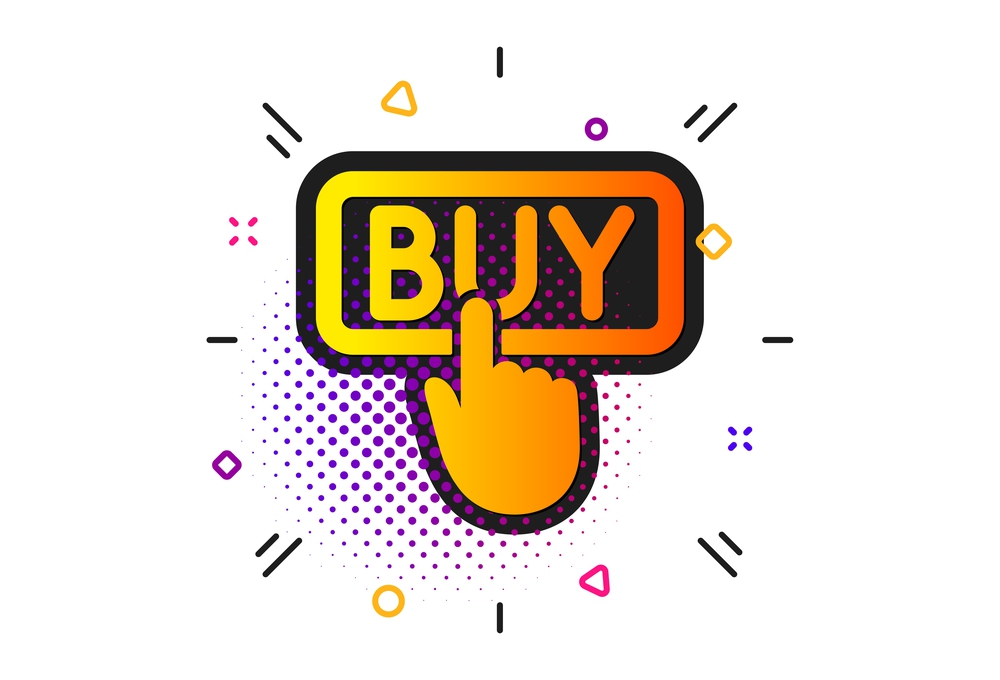
Startups are risky. Here’s how you can maximize your chances of getting a merchant account for one.
Sep 29, 2021 3 minute Read
Startups are inherently high risk, which means getting a merchant account as a new small business owner is going to be a challenge. It can seem like a perpetual cycle. You need payment processing history and past business experience to get approved for a merchant account. But how can you get the experience without being approved?
Don’t fret—there’s a way to break this cycle. And there’s a reason for startups being viewed as high-risk businesses to acquiring banks and debit card/credit card processors. We’ll give you the tools you need to escape this cycle and get your business in position for profitability.
Why Startups Are Risky Business
Did you know 9 out of 10 startups fail within the first year of operation? Without getting too far into it, there are a few major points of success that remaining 10% adhere to. And those points are exactly what will help you with your merchant account application.
Lack of Understanding for Business Processes
Part of being a successful business is understanding the ins and outs of your business. As a startup business owner, you can’t ignore anything: communication with customers, clients, and investors; market growth; competition; in-house production. It’s all equally important.
Product Doesn’t Match the Market
Are you sure what you’re selling is what customers want? Do some audience research and make sure what you’re selling is something valuable. If no one wants what you’re selling, you can’t expect banks to back you.
Ill-prepared for Growth
No company remains a startup forever. Soon, your business will need to grow up and become a full-fledged, sustainable business. Being ill-prepared for that type of growth—and fast growth—is what kills a lot of startups.
Falls in a High-risk Industry
Startups aren’t an industry in-and-of themselves. The fact of starting up a business in general is risky. But even more specifically, startups can be a business within a high-risk industry like dropshipping or supplements. That’s a double whammy for banks.
High risk industries are categorized as such because of their association with chargebacks and fraud. Banks don’t want to front the cash for a refund and run the risk that you can’t pay them back. A lot of high-risk retailers process high sales volumes per month. High volume plus startup plus chargeback does not equal a recipe for success.
Banks Don’t Know You
Simply put, banks have no idea who you are and if they can trust you. They don’t know how your business performs, how secure your e-commerce store is, your reputation, or the quality of your business. That’s a big risk, taking in a stranger and giving them keys to their house.
How to Prepare for Successfully Applying for a Merchant Account
Let’s take in all the negativity from above and transform it into something actionable. Each factor can be used to improve your application.
Outline Your Business
Since you have no processing history, no large balances in your bank account, and (probably) no previous business venture history, there’s only one thing to do: outline your business. Prove in your application that you know your business inside and out, and that you have a plan. This will help show your dedication to the business and paint a picture for the acquiring bank of how operations are handled.
Provide Financial Projections
There’s no way you can be 100% sure of how well your business will do, but can you prove your confidence in the product your business model you have through financial projections. This not only verifies market need for whatever it is your business does, but also alleviates worry from banks about your financial health. And that’s the bottom line, isn’t it? Banks are more concerned with finances than anything else—prove your small business will remain financially healthy with projected financials and initial deposits.
Prepare for Growth
When a product does well, there’s more demand for it in the market. That means upping operations and operational costs. To do that, you’ll likely need more financial support from investors and a higher monthly sales volume cap for processing transactions. A strong initial funding source, even if it’s a personals source, is a great start supplemented by funding source potential/plans the match the scale of the business’ trajectory. In short, have a financial plan.
Know Your Industry
Low-risk industries don’t have to worry too much about this part aside from understanding market need. For high-risk startups, though, you’ll want to demonstrate some level of understanding for the industry in which you plan to operate in. Ask yourself, “why should a bank allow me to operate in a high-risk industry?” What will you do to prevent the things that typically accompany a high-risk business?
That also means utilizing some key facts about your industry’s relationship with chargebacks and fraud. If you’re in the CBD business, do some research about regulations that prevent you from operating in certain jurisdictions or about FDA violations. For life coaches, research chargeback ratios for the industry and how you can implement a refund policy that better prevents them from happening. These are just a couple examples, so do some research for your industry and use some statistic to your advantage.
Get Your KYC Documents in Order
Know Your Customer (KYC) is the first step towards gaining a bank’s trust. It’s also a typical part of the underwriting process for any startup merchant account application. Documents usually include:
- Documents of incorporation – directors, stakeholders, certificate of incorporation
- Bank and financial statements – personal bank statements, initial funding statements, personal credit history,
- Identification – passport, driver’s license
- Proof of address – utility bill or similar for personal address and for business address
KYC doesn’t stop here. As an online business, your website will also need to meet certain criteria:
- Business contact info – email address, phone number, physical address, legal business name
- Terms and Conditions page
- Policy page – return or refund policy, shipping and handling policy, privacy policy
- SSL certificate
- Domain ownership – owner is visible on Who Is or provides proof of ownership (invoice)
There are a couple of other helpful criteria for the website, but they may not be applicable right away if your site cannot process credit card payments yet. First is displaying the logos of each credit card network or payment processor used. This includes Visa and Mastercard, and processing services like PayPal and Apple Pay. Another is the “billed as” description, which demonstrates clearly how the transaction will appear on the customer’s bank statement.
For the website’s checkout process, there are a couple of other things you can do to gain a bank’s trust. 3D Secure, CVV, and AVS are three security measures you can implement in your online store‘s payment gateway via APIs and plugins to help avoid fraudulent charges by verifying the security of the customer. You should also become PCI-compliant (it’s almost mandatory, anyway).
Clearing Up the Details About Stripe and PayPal
With the above outline, you’re set up for success for your startup merchant account application, including for startups in high-risk industries. But many people wonder, “can I use PayPal or Stripe for my startup?” The answer is no. Not if you want your business to last.
You Will Get Instantly Approved, But Beware
PayPal, Stripe, Square, and the like are 3rd-party processors. They approve you in an instant and then perform a full audit for service approval later. Their plan is to get as many e-commerce businesses operating and making them money as possible, so they focus less on the details in the beginning.
This way of operating is harmful to startups and other high-risk businesses because they can instantly get their account terminated or funds withheld. Having a terminated account is incredibly harmful when applying for replacement merchant accounts and future payment solutions if you end up on the terminated merchant list or MATCH list.
What usually tips these processors off is when a few too many chargebacks or refund requests come through. They also have a fairly low volume limit to start which is easy to surpass if your business has a successful launch.
Use 3rd-party Processors Cautiously
Having said the above, if you need to start processing transactions immediately (or next-day), then 3rd-parties are a great short-term solution. If you carefully monitor your processing volume and can avoid refunds for a few months, you’ve built yourself a solid transaction history start.
That credit card processing history can help your approval odds for a real merchant account. Sales might have to stay low for a little while, but it’s worth it in the end. And if you have a monthly subscription to invoicing applications like Quickbooks, 3rd-party processors generate integrate well. That means you all the processing proof you need is at the tip of your fingers.
Another point to factor in your use of 3rd-party payment processing is fees. Aside from not having very transparent pricing, they are non-negotiable and typically lean on the more expensive side. Especially for high-risk businesses, you’ll be faced with high cancellation fees, chargeback fees, early termination fees for your account, flat-rate processing fees, card transaction fees, setup fees, and monthly fees. All of these can be negotiated to an extent when you obtain a high-risk merchant account, where you’ll want to either use tiered pricing or interchange-plus pricing structures.
Our customer support team can help you understand these pricing models better when it comes down to choosing your online payment processor. And we can secure a long-term contract to lock in the best credit card processing rates for years to come.
Increase Your Approval Odds and Open a High-Risk Startup Merchant Account through DirectPayNet
No one wants to stifle their sales, especially after building up initial momentum via marketing and promotion. Avoid the 3rd-party mess and let DirectPayNet be your best merchant account provider. Our specialists will help you prepare your application for approval from acquiring banks and credit card processing companies so you can get your shopping cart live and your store ready for selling.
And as your all-in-one merchant service provider, we’ll help you monitor chargebacks and fraud. Soon you’ll be set with everything your business needs to process payments. Whether that’s online transactions via contactless payment options and virtual terminals to brick-and-mortar payment methods via EMV card readers, mobile payments, and point-of-sale (POS system) card terminals.





4 thoughts on “Startups are risky. Here’s how you can maximize your chances of getting a merchant account for one.”